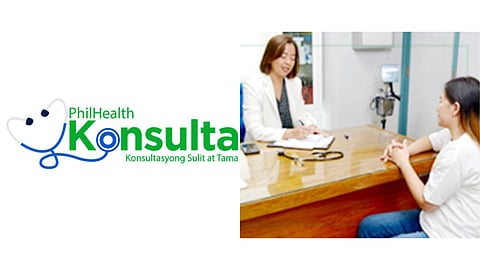
- NEWS
- the EDIT
- COMMENTARY
- BUSINESS
- LIFE
- SHOW
- ACTION
- GLOBAL GOALS
- SNAPS
- DYARYO TIRADA
- MORE

The Philippine Health Insurance Corporation (PhilHealth) is expanding the implementation of its Konsultasyong Sulit at Tama (Konsulta) program as part of its commitment to achieving Universal Health Care (UHC).
According to PhilHealth, the program aims to provide Filipinos with equitable access to quality and affordable healthcare.
While significant progress has been made since the enactment of the Universal Health Care Act in 2019, PhilHealth acknowledges that much work remains to be done. The company is focusing on expanding the network of accredited Konsulta service providers and enhancing communication efforts to ensure that providers and beneficiaries are fully informed about these vital services.
To support PhilHealth in its efforts, the Unilab Center for Health Policy (UCHP) convened stakeholders from various sectors in a roundtable discussion. During the discussion, UCHP introduced the Konsulta Manual of Operations (MOP), a guidebook designed to streamline the implementation of the program for healthcare providers and local government units (LGUs).
“We all have a unique opportunity to address the challenges of primary health care,” said Unilab Foundation executive director Atty. Jose Maria Ochave. “In this roundtable discussion, we can take small, yet deliberate and steady steps that will advance the ‘health for all’ promise of Universal Health Care.”
As a country accustomed to fee-for-service healthcare, Filipinos often seek medical attention only when faced with serious health issues. PhilHealth’s Konsulta is promoting the importance of proactive healthcare through its comprehensive outpatient benefits program.
Launched nationwide in 2020, Konsulta aims to enhance health by preventing chronic illnesses, promoting early detection, and offering affordable medications. Through Konsulta, Filipinos can register with accredited providers to access a range of services including consultations, health risk screenings, laboratory tests, and essential medicines.
While the Philippine health system has made progress in expanding access to Konsulta, it still faces challenges in meeting the ideal ratio of one primary care facility for every 20,000 Filipinos. To address these challenges and ensure that no Filipino is left behind, government agencies, local governments, private institutions, and communities must work together.
The company is focusing on expanding the network of accredited Konsulta service providers and enhancing communication efforts to ensure that providers and beneficiaries are fully informed about these vital services.
PhilHealth has already made significant progress in its rollout of Konsulta. In its commitment to further improvement, PhilHealth engaged in an open discussion with public and private Konsulta providers, LGUs, and patient groups, which revealed the challenges encountered in the implementation of Konsulta.
Among these are difficulties with navigating finances, facility accreditation and patient registration, patients’ unfamiliarity with the importance of the program, and the need for clearer processes and better information dissemination.
“The Unilab Center for Health Policy believes in PhilHealth’s Konsulta, which is why, when it was launched, one of UCHP’s first priority projects was to develop the Manual of Operations for the Konsulta package,” said UCHP program director Ruben Basa.
The Manual of Operations is a comprehensive guidebook that aims to address implementation challenges by providing a clear, step-by-step guide on key aspects such as membership registration, provider accreditation, and social mobilization. Additionally, the Manual of Operations covers practical aspects of the Konsulta program, including benefits availment, provider billing, payment processes, and information systems, to foster a more structured and efficient approach.
